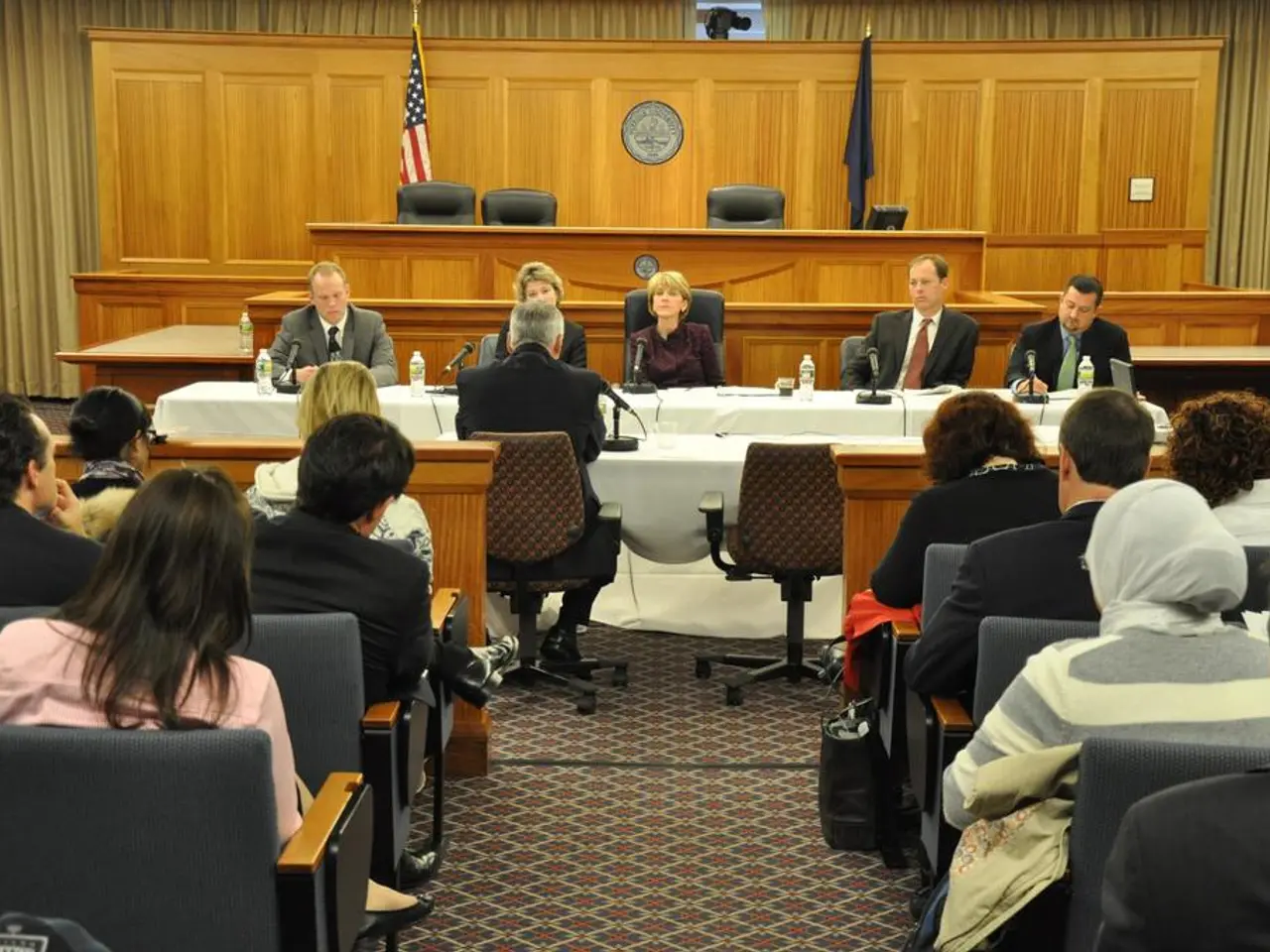Political disarray in Texas: Democrats refrain from participating in the election vote
In the heart of America, Texas is embroiled in a contentious political power struggle, with the future of congressional district boundaries hanging in the balance[1][2]. The ongoing dispute between Texas Republicans and Democrats is centred around a mid-decade redistricting plan aimed at gaining up to five additional GOP-leaning U.S. House seats[1][2].
Texas House Speaker Dustin Burrows has lamented the absence of Democratic representatives, stating they are shirking their responsibility[1]. The Democrats, in a dramatic move, have fled to democratically governed states of Illinois and New York to prevent a quorum for the vote[1][3]. This walkout is a political maneuver to stall the approval of the map, with Democrats viewing the proposed redistricting as unconstitutional and a partisan gerrymander that would unfairly disadvantage them[3].
The proposed map would dismantle four districts that the U.S. Department of Justice alleged were unconstitutionally combining Black and Hispanic voters, though Texas denies these claims[1][2]. Texas Attorney General Ken Paxton has suggested that the absent Democrats should be "found, arrested, and immediately returned to the Capitol"[4].
Meanwhile, the U.S. Department of Justice has demanded the redrawing of these four districts, arguing that the current version allows for unconstitutionally strict ethnic division[1]. The political power struggle is significant, with implications for the 2026 elections. If Texas Republicans succeed in redrawing districts, they could strengthen their hold on the U.S. House, helping them maintain a narrow majority[1][2].
In response to the Texas situation, California is countering with its own plans. Governor Gavin Newsom and former House Speaker Nancy Pelosi have announced a special election ballot measure aimed at counteracting Texas's map and protecting Democratic seats nationwide[3]. This move is framed as a defense of democracy against partisan manipulation.
The boycott by Texas Democrats is a rare form of protest in individual state parliaments, historically occurring over contentious issues[1]. The deliberate manipulation of district boundaries, which Democrats are protesting, is known as "gerrymandering"[1]. This practice, employed by both parties, has seen a significant role played by states led by Republicans in recent years[1].
The congressional elections will take place in November 2026, with all 435 seats in the House of Representatives and around a third of the 100 Senate seats up for election[1]. As the dispute remains unresolved, legal battles, legislative standoffs, and interstate political countermeasures continue, all with a critical eye on shaping the 2026 U.S. House election outcomes in Texas[1][3][4].
Interestingly, another interest group had already sued in 2021, claiming that Texas' district map systematically disadvantages black and Latino voters[1]. The strategy of "gerrymandering" is being employed by both parties, but recently, states led by Republicans have played a significant role.
Texas currently has 25 Republican and 12 Democratic representatives, with an additional seat in a predominantly Democratic district to be filled in the upcoming November election[1]. Democratic Representative Gene Wu called the process "corrupt" and insisted it was not about "playing political games"[1].
Governor Hochul of New York commented that they are fighting fire with fire in response to the Texas situation, while Illinois Governor JB Pritzker and New York Governor Kathy Hochul are considering a counteroffensive by redrawing their districts to favor their own party[1]. The Republicans, led by former US President Donald Trump, want to gain additional seats from Texas in the 2026 congressional elections to expand their majority in the national legislative chamber[1].
In conclusion, the Texas redistricting dispute is a complex and intense battle for power and representation, with significant implications for the 2026 elections. As the conflict escalates, it serves as a stark reminder of the ongoing struggle for fair representation in American politics.
- The ongoing political power struggle in Texas, centered around the proposed redistricting plan, is attracting attention in both general news and political discussions on policy-and-legislation, war-and-conflicts, and politics.
- Texas' redistricting dispute has garnered significant attention in other states like California, where Governor Gavin Newsom and former House Speaker Nancy Pelosi have announced a special election ballot measure, framing it as a defense against partisan manipulation and a response to Texas' proposed map.







